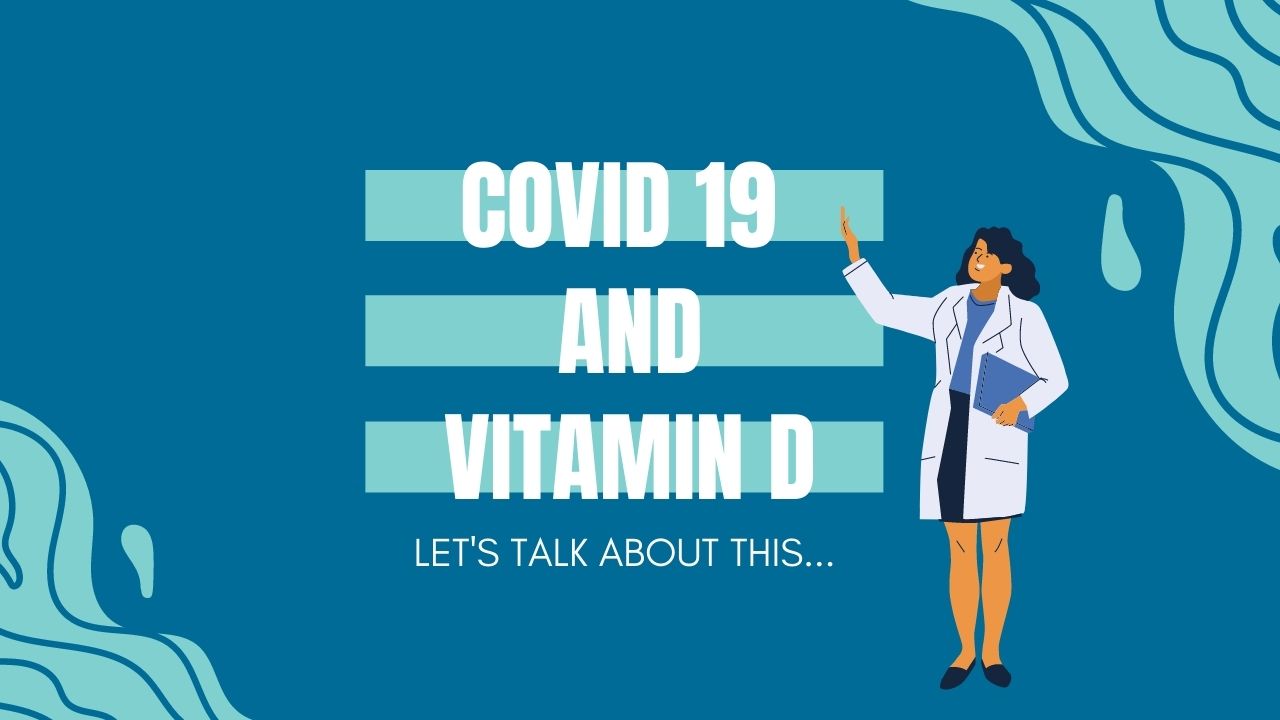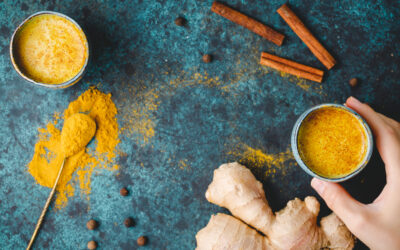While most of the spotlight for COVID related prevention and health has been on a vaccine, there’s been little talk about increasing our bodies natural defenses to prevent or fight COVID. Vaccines are very important and play a critical public health role, however more and more evidence is highlighting the importance of strengthening our own bodies to face off against COVID.
Don’t let the name of “Vitamin D” fool you. It acts much more like a hormone than a vitamin. Vitamin D plays an important part in our innate immune defenses. Vitamin D has numerous effects on cells within the immune system. Vitamin D is a steroid hormone, it binds to receptors and binds to the nucleus of the cell. It’s telling the cell certain proteins to make. It can inhibit or enhance transcription of different proteins. It inhibits B cell proliferation and blocks B cell differentiation and immunoglobulin secretion. Vitamin D additionally suppresses T cell proliferation and results in a shift from a Th1 to a Th2 phenotype. Furthermore, it affects T cell maturation with a skewing away from the inflammatory Th17 phenotype and facilitates the induction of T regulatory cells. These effects result in decreased production of inflammatory cytokines (IL-17, IL-21) with increased production of anti-inflammatory cytokines such as IL-10.
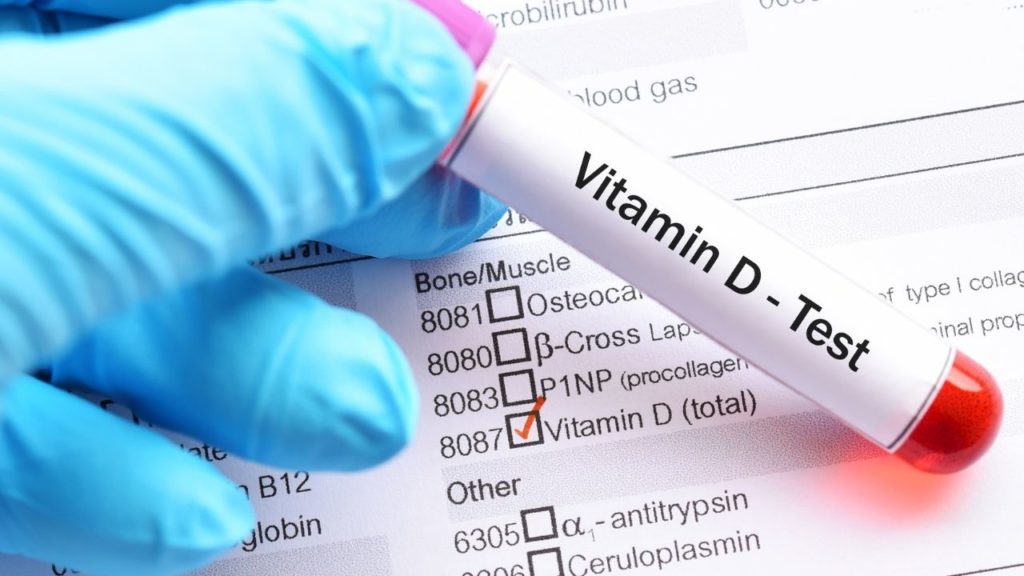
Scientists at the University of Copenhagen have discovered that Vitamin D is crucial to activating our immune defenses and that without sufficient intake of the vitamin, the killer cells of the immune system – T cells – will not be able to react to and fight off serious infections in the body.
T cells do not prevent infection, because they kick into action only after a virus has infiltrated the body. But they are important for clearing an infection that has already started. In the case of COVID-19, killer T cells could mean the difference between a mild infection and a severe one that requires hospital treatment.
A 2017 meta-analysis of 25 randomized controlled trials involving about 11,000 people concluded that giving daily or weekly vitamin D supplements reduced the risk of acute respiratory infections—with the strongest impact predictably falling on those who started off with a serious deficiency of the vitamin. Another 2021 meta-analysis vitamin D supplementation was safe and overall reduced the risk of acute respiratory infections compared with placebo.
Epidemiological data emerging early in the pandemic also suggested that the vitamin might be useful. People older than age 65 and people of color are more likely to have lower levels of vitamin D. Both groups face a higher risk of poor outcomes from COVID-19, although the reasons for their vulnerability are multifaceted. In addition, studies have shown that countries farther away from the equator—where levels of the vitamin tend to be lower because of less sunlight—have higher COVID death rates than those closer to the equator.
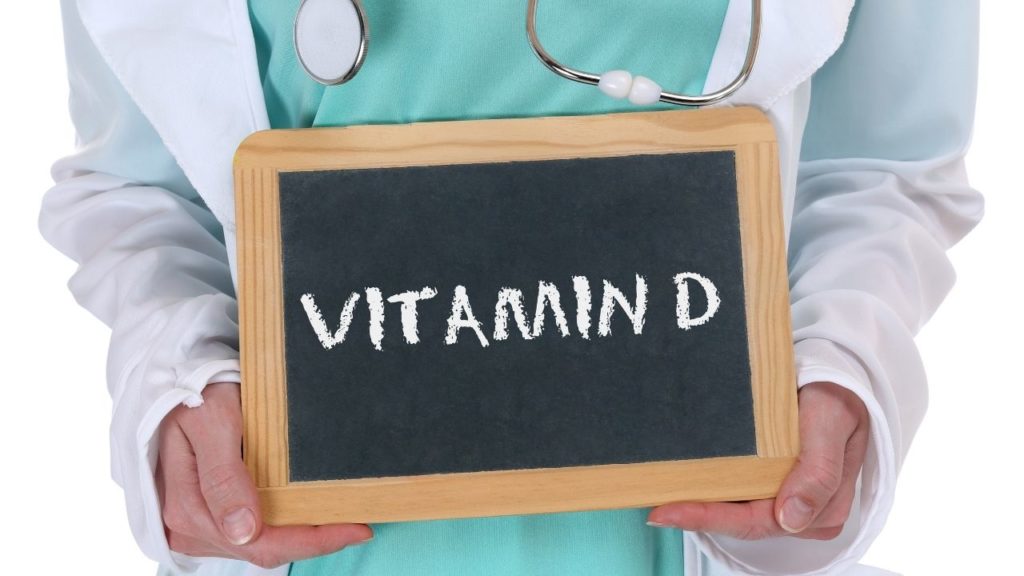
Some of the first COVID-19 reports found that up to 85% of infected patients exhibited hypovitaminosis D (low Vitamin D) and that serum levels of 25-hydroxyvitamin D (25(OH)D) concentrations were also lower in infected patients as compared to controls.
Overall people with lower levels of Vitamin D have seem to have more severity and longer hospitalizations than those higher levels. Some research shows elevated Vitamin D levels could decrease COVID-19 positive testing as well as alleviate intensity of the illness. However, association does not equal causation. So that doesn’t mean, necessarily, that giving Vitamin D would improve COVID patients.
The SHADE study noticed improvements in inflammatory in COVID patients were lower and 60% of patients cleared the virus in 3 weeks as opposed to 20% of patients. However, these patients were given 60,000 IU daily for 7 days. Doses this high are not recommended so I don’t suggest you do this unless you talk with your doctor first.
In a pilot study done in 2020 in Spain, when COVID-19 patients are given Calcifediol or 25-hydroxyvitamin D, it reduced the ICU admissions from 50% to 2%. Furthermore, none of the patients administered Vitamin D died, vs 7.7% (2) of the placebo group that died. Calcifediol seems to be able to reduce severity of the COVID disease.

Vitamin D is easy to come by. A simple 20-30 minutes of sunshine on your skin will provide some adequate Vitamin D. So get out in nature with some fresh air and sunshine. Foods such as mushrooms and fish oil are good sources of Vitamin D. You can get you Vitamin D levels checked very easily through your doctor.
High doses of Vitamin D injections are part of our standard COVID prevention and therapeutic treatments.
If you need a good, high quality Vitamin D supplement, check out our Fullscript or Designs For Health stores.
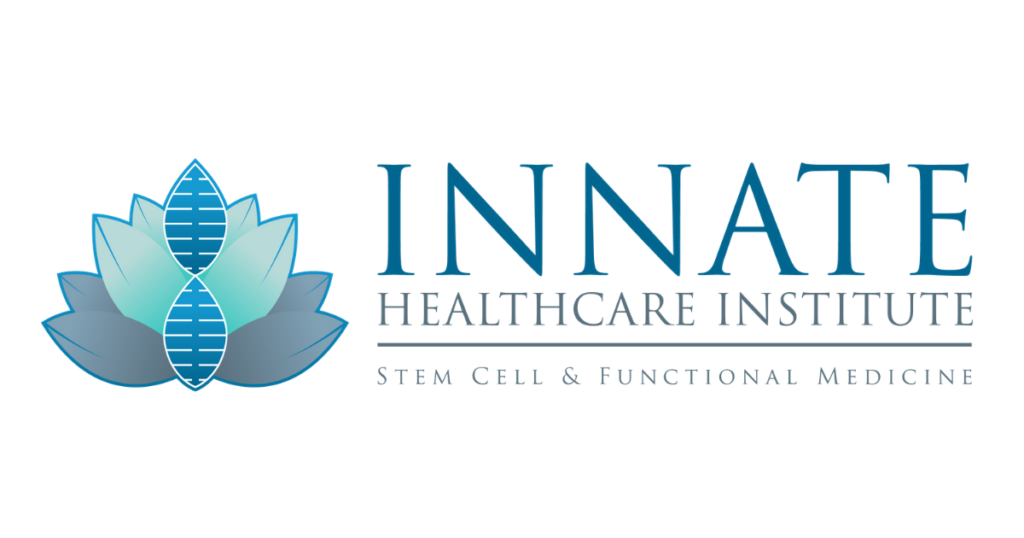
References
Aranow, Cynthia. “Vitamin d and the Immune System.” Journal of Investigative Medicine, vol. 59, no. 6, 2011, pp. 881–886., doi:10.2310/jim.0b013e31821b8755.
Demir, Mustafa, et al. “Vitamin D Deficiency Is Associated WITH COVID‐19 Positivity and Severity of the Disease.” Journal of Medical Virology, vol. 93, no. 5, 2021, pp. 2992–2999., doi:10.1002/jmv.26832.
Demir, Mustafa, et al. “Vitamin D Deficiency Is Associated WITH COVID‐19 Positivity and Severity of the Disease.” Journal of Medical Virology, vol. 93, no. 5, 2021, pp. 2992–2999., doi:10.1002/jmv.26832.
Elvidge, Suzanne. “Can Vitamin D Help Protect against COVID?” Scientific American, Scientific American, 24 June 2021, www.scientificamerican.com/article/can-vitamin-d-help-protect-against-covid/.
Entrenas Castillo, Marta, et al. “‘Effect of CALCIFEDIOL Treatment and Best Available Therapy versus Best Available Therapy on Intensive Care Unit Admission and Mortality among Patients Hospitalized for Covid-19: A PILOT Randomized Clinical Study.’” The Journal of Steroid Biochemistry and Molecular Biology, vol. 203, 2020, p. 105751., doi:10.1016/j.jsbmb.2020.105751.
Martineau, Adrian R, et al. “Vitamin d Supplementation to Prevent Acute Respiratory Tract Infections: Systematic Review and Meta-Analysis of Individual Participant Data.” BMJ, 2017, p. i6583., doi:10.1136/bmj.i6583

